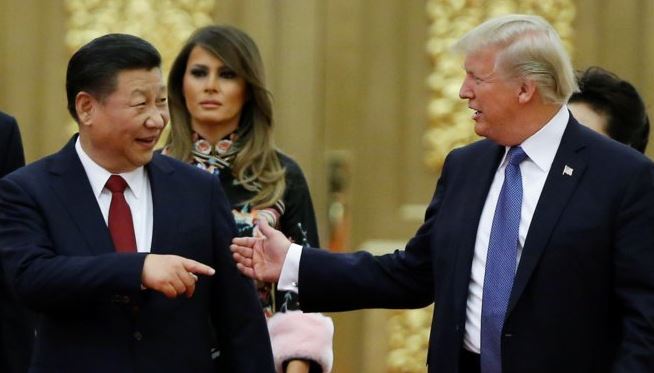In late June, the United States and China managed to negotiate a temporary "truce" in the trade war, which could allow the parties to move the negotiations on a more constructive track. Donald Trump promised to postpone the introduction of 25 percent duties on $ 325 billion of Chinese imports, but US Treasury Secretary Stephen Mnuchin noted that Washington reserves the right to impose 10% tariffs in the near future if negotiations turn out to be unproductive. Experts from the international group Coface, specializing in trade insurance, believe that the truce between the powers will be short-lived due to a number of fundamental disagreements - moreover, other countries of the Asian region may be drawn into a trade war with the United States.
Consequences of the trade war threaten to spill over to consumers
On May 6, the US announced a $ 200 billion tariff hike for Chinese imports from 10% to 25%, and just a couple of weeks later, the US Department of Commerce announced the blacklisting of Chinese telecommunications giant Huawei. The latter step has caused a particularly wide international resonance: if Huawei cannot purchase parts and components from American manufacturers, the existence of a wide range of the company's products will be threatened, since many American parts are not produced in China or elsewhere. This, in turn, can trigger a chain reaction across the entire information and communications technology sector and lead to disruptions in international production chains.
With each new exacerbation of the trade conflict, the economies of countries suffer more and more. At the same time, the damage to the market is caused not only by the direct consequences of protectionism in the form of a decrease in the volume of taxed exports, but also indirect ones: the growth of tension in the international political arena forces businesses to take defensive positions and postpone expansion plans until better times. For example, a study by Coface earlier this year on payment discipline among Chinese companies showed that 60% of enterprises (out of 1,500 surveyed) expect a slowdown in market growth.
As a result of the deteriorating business climate, the volume of retail sales in the PRC in the first six months of 2019 fell by 8.6% compared to the same period last year, and investment in fixed assets - by 5.6%. These results are especially dismal when you remember that just a few years ago, the same indicators showed double-digit growth. And although the slowdown in Chinese market growth is largely due to a natural cyclical downturn, the trade war with the United States has also contributed significantly to the deterioration of economic dynamics.
In the United States today, the negative consequences of the tariff increase are felt mainly by manufacturers, but if Washington implements its threats and imposes 25 percent tariffs on the entire remaining volume of Chinese imports, the trade war will significantly affect consumers as well - mainly due to a sharp rising prices for many consumer goods. This, in turn, could reduce personal consumption and even accelerate inflation, which Trump would certainly like to avoid ahead of the upcoming 2020 elections.
No one is insured?
With the United States and China still managing to agree on a number of key issues, the trade war truce can be expected to be short-lived. Separately, it is worth noting the nature of the communique adopted as a result of the G20 summit, at which Beijing and Washington agreed to take a break in the exchange of strikes: there is no mention of protectionism in the text of the document, which can be understood as the lack of intentions of the international community to resist the escalation of trade disputes.
China cannot just take and suddenly drastically change its economic policy, while the volume of imports that the United States can impose with tariffs is not infinite - this means that soon the American authorities may use other protectionist instruments in addition to tariffs. For example, given the situation with Huawei, it cannot be ruled out that other Chinese corporations will be added to the blacklist of the Ministry of Commerce in the near future. Beijing, in turn, is unlikely to leave such unfriendly steps without an equivalent response to American enterprises operating in the Chinese market.
On the eve of the G20 summit, Donald Trump said that the United States is considering the possibility of introducing additional tariffs on goods from Europe, Japan and Vietnam. For Vietnam, this is particularly bleak news - it is preparing to "intercept" a significant part of the production chains that are now being withdrawn from China due to the risks associated with the trade war, but if Vietnam itself falls under US restrictive measures, the opportunity will certainly be lost. After the summit, it became clear that any country with which the United States has a trade deficit risks being hit. Moreover, 5 out of 10 countries with which the volume of imports





